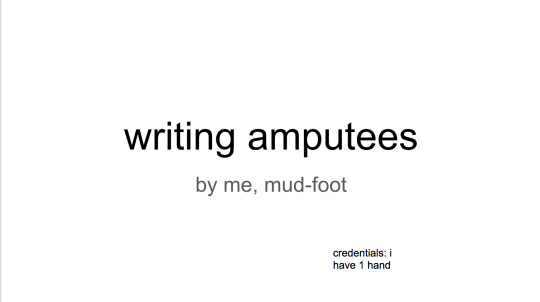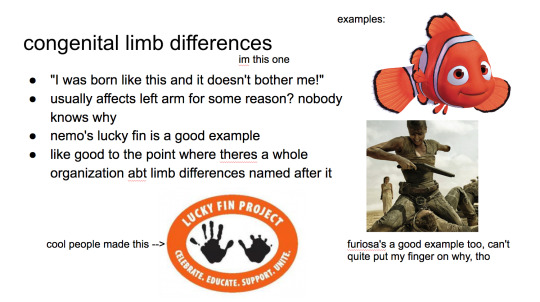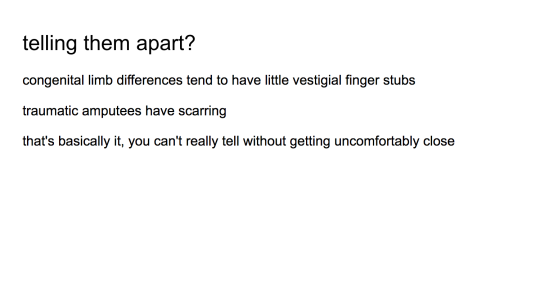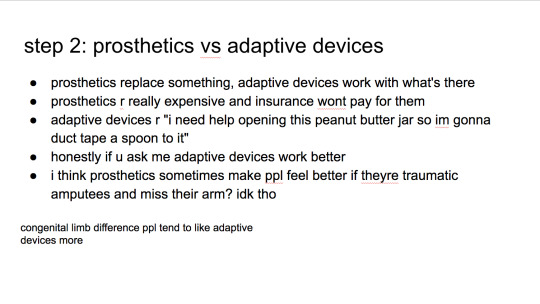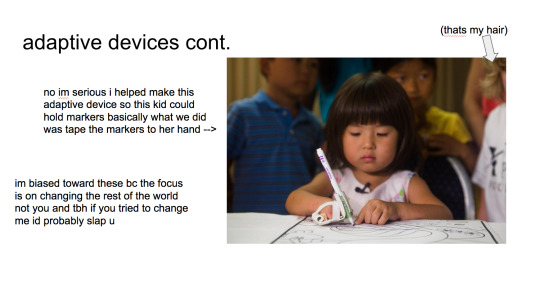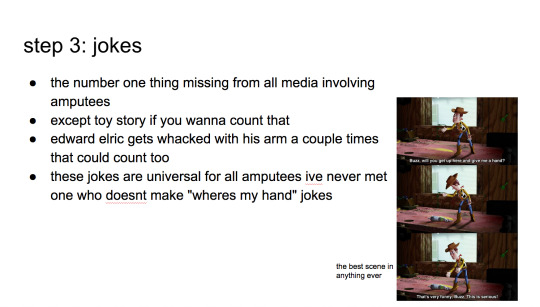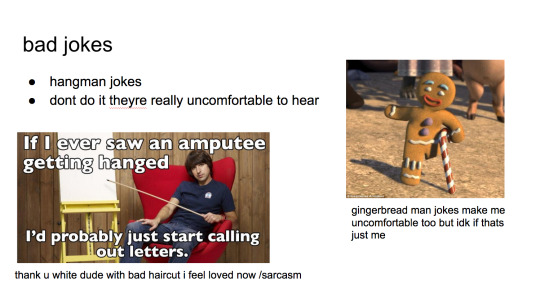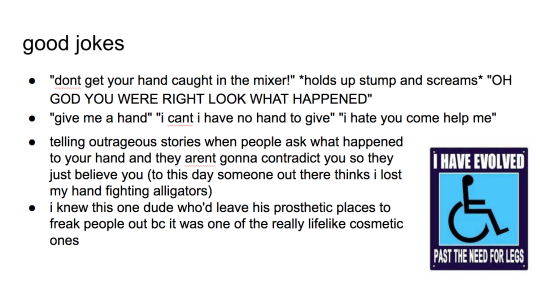But I’ll sure give it a shot! Writing/Creative blog. I’m willing to write for absolutely anything, but I can’t guarantee it’ll be accurate. Now doing mood/aesthetic boards. Requests always open! (Please no NSFW asks.)Follows back from @je11oprodigy
Don't wanna be here? Send us removal request.
Text
Encouragment for writers that I know seems discouraging at first but I promise it’s motivational-
• Those emotioal scenes you’ve planned will never be as good on page as they are in your head. To YOU. Your audience, however, is eating it up. Just because you can’t articulate the emotion of a scene to your satisfaction doesn’t mean it’s not impacting the reader.
• Sometimes a sentence, a paragraph, or even a whole scene will not be salvagable. Either it wasn’t necessary to the story to begin with, or you can put it to the side and re-write it later, but for now it’s gotta go. It doesn’t make you a bad writer to have to trim, it makes you a good writer to know to trim.
• There are several stories just like yours. And that’s okay, there’s no story in existence of completely original concepts. What makes your story “original” is that it’s yours. No one else can write your story the way you can.
• You have writing weaknesses. Everyone does. But don’t accept your writing weaknesses as unchanging facts about yourself. Don’t be content with being crap at description, dialogue, world building, etc. Writers that are comfortable being crap at things won’t improve, and that’s not you. It’s going to burn, but work that muscle. I promise you’ll like the outcome.
38K notes
·
View notes
Text
Every writing advice thing ever: Don’t get bogged down in details on your first draft. Just write! ☺️
Me: How I begin this scene hinges on whether cheese sandwiches were served with mayo in the 50’s.
97K notes
·
View notes
Text
This isnt a joke my favorite piece of writing advice that I’ve ever seen is someone that said if you were stuck with a fic and couldn’t figure out why or what was wrong, your problem is actually usually about ten sentences back. Maybe there was something wonky about the tone or the dialogue or you added something that didn’t fit but it’s usually ten sentences back. And every single time I get stuck in a fic I count back ten sentences and it’s always fucking there
67K notes
·
View notes
Text
some random redemption arcs that aren’t just ‘zuko, but a little to the left’
I’m evil but all my evil friends betrayed me and I’ve decided that the best revenge is to ruin their evil plans. Yes, this means I’m a “good guy” or whatever. No, I don’t like it any more than you do.
I was evil but all my evil friends betrayed me and now I’m going to latch onto the first person who shows me kindness. If that happens to be the protagonist, I am totally fine with realigning my morality to match theirs.
I never wanted to do what I did, and now the biggest obstacle to me switching sides is convincing me that I’m not a living weapon.
Well as long as you’re imprisoning me in this magic amulet I might as well give you pointers on your technique. I mean come on if you all die I might be stuck here for millennia! It’s not because I like you and don’t want you to die. Nuh uh.
Look, I legit thought that being evil was going to be my best option to get this important thing done, but, uh, that didn’t pan out. Help?
63K notes
·
View notes
Text
How to Kick a Reader in the Gut
Disrupt the reader’s sense of justice.
This generally means setting a character up to deserve one thing and then giving them the exact opposite.
Kill a character off before they can achieve their goal.
Let the bad guy get an extremely important win.
Set up a coup against a tyrannical king. The coup fails miserably.
Don’t always give characters closure.
(Excluding the end of the book, obviously)
A beloved friend dies in battle and there’s no time to mourn him.
A random tryst between two main characters is not (or cannot be) brought up again.
A character suddenly loses their job or can otherwise no longer keep up their old routine
Make it the main character’s fault sometimes.
And not in an “imposter syndrome” way. Make your MC do something bad, and make the blame they shoulder for it heavy and tangible.
MC must choose the lesser of two evils.
MC kills someone they believe to be a bad guy, only to later discover the bad guy was a different person altogether.
Rejection is a powerful tool.
People generally want to be understood, and if you can make a character think they are Known, and then rip that away from them with a rejection (romantic or platonic) people will empathize with it.
MC is finally accepting the Thing They Must Do/Become, and their love interest decides that that’s not a path they want to be on and breaks up with them
MC makes a decision they believe is right, everyone around them thinks they chose wrong.
MC finds kinship with someone Like Them, at long last, but that person later discovers that there is some inherent aspect of MC that they wholly reject. (Perhaps it was MC’s fault that their family member died, they have important religious differences, or WERE THE BAD GUY ALL ALONG!)
On the flipside, make your main character keep going.
Push them beyond what they are capable of, and then push them farther. Make them want something so deeply that they are willing to do literally anything to get it. Give them passion and drive and grit and more of that than they have fear.
“But what if my MC is quiet and meek?” Even better. They want something so deeply that every single moment they push themselves toward it is a moment spent outside their comfort zone. What must that do to a person?
Obviously, don’t do all of these things, or the story can begin to feel tedious or overly dramatic, and make sure that every decision you make is informed by your plot first and foremost.
Also remember that the things that make us sad, angry, or otherwise emotional as readers are the same things that make us feel that way in our day-to-day lives. Creating an empathetic main character is the foundation for all of the above tips.
12K notes
·
View notes
Text
Apparently a lot of people get dialogue punctuation wrong despite having an otherwise solid grasp of grammar, possibly because they’re used to writing essays rather than prose. I don’t wanna be the asshole who complains about writing errors and then doesn’t offer to help, so here are the basics summarized as simply as I could manage on my phone (“dialogue tag” just refers to phrases like “he said,” “she whispered,” “they asked”):
“For most dialogue, use a comma after the sentence and don’t capitalize the next word after the quotation mark,” she said.
“But what if you’re using a question mark rather than a period?” they asked.
“When using a dialogue tag, you never capitalize the word after the quotation mark unless it’s a proper noun!” she snapped.
“When breaking up a single sentence with a dialogue tag,” she said, “use commas.”
“This is a single sentence,” she said. “Now, this is a second stand-alone sentence, so there’s no comma after ‘she said.’”
“There’s no dialogue tag after this sentence, so end it with a period rather than a comma.” She frowned, suddenly concerned that the entire post was as unasked for as it was sanctimonious.
119K notes
·
View notes
Text
Reasons why a character might be unable to say "Thank you."
Insecurity
They don't know how to voice it.
At all or in the appropriate amount/way, whithout it coming off as either too desperate or too careless.
They don't know for what/where to start.
They know the other isn't used to being thanked and would probably be just as awkward about it.
They wouldn't know how to keep their conversation/relationship up afterwards.
Fear
They'd have too think too much about all they way they hurt others in order to be helped.
If they acknowledge the help, the other might hold it against them.
Aka. They pronounce them to the world as "weak" and "incapable"
Aka. The other might see it as a give and take, meaning they'd be officially indebted to them until they helped the other in an equally huge way.
They would have to accept all the things they cannot do (alone or even at all) aka they're not the perfect being others pressured them to be.
The "thank you" could be 'rejected' or dismissed. What do you do then? Suffer in silence but have the other know about it ? No, thank you.
"It was just a job to the other anyway. They would've done it for anyone. This wasn't anything special to them cause it was ME .. why would they care if I did thanked them? No, that would be far too exposing of my vulnerability"
Shame
They are ashamed to have needed help in the first place.
Especially if it's "again" or "for the first time" or after bragging about "never needing it"
They're ashamed about the reason.
They're ashamed about they way/the kind of help they needed.
They're ashamed about needing that persons help.
They're ashamed about the situation/location they needed help in.
1K notes
·
View notes
Text
Hey, to you sci-fi/fantasy writers out there (and maybe some others, but this is mainly for things that can’t really be researched irl), if you want to write a character who is a driven, passionate expert on something, don’t write about them rambling indifferently about some boring, mundane part of it. Give them a deep, intense hatred of some oddly specific wow-I-did-not-even-know-that-was-a-thing-and-it-would-have-never-occurred-to-me-that-it’s-a-bad-thing thing they’ll gladly rant about.
Write a dragon rider who really fucking hates it when a dragon is trained to bow while being reined. A space ship engineer who is pissed off when perfectly good antimatter ship has been adapted to run on neutral matter. A historian who is still not over the massive failures of a general who lost a specific battle 300 years before she was born.
The guy currently giving us a series of lectures on the restoration of historical buildings really, really hates polymer paint. At the artisan school our stained glass teacher really hated this one specific Belgian artist - we never really figured out what did that guy even do, but he’s been dead for over 200 years and our teacher was glad that at least he’s dead.
Experts don’t just know things you’ve never thought about. They’ve got strong opinions about it.
67K notes
·
View notes
Text
One thing I’ve learned about writing is ”give everything a face”. It’s no good to write passively that the nobility fled the city or that the toxic marshes were poisoning the animals beyond any ability to function. Make a protagonist see how a desperate woman in torn silks climbs onto a carriage and speeds off, or a two-headed deer wanders right into the camp and into the fire. Don’t just have an ambiguous flock of all-controlling oligarchy, name one or two representatives of it, and illustrate just how vile and greedy they are as people.
it’s bad to have characters who serve no purpose in the story, but giving something a face is a perfectly valid purpose.
97K notes
·
View notes
Text
something to remember when writing characters who use they/them pronouns:
an issue i see a lot in various excerpts when using the singular they pronoun is unintentional pluralization! changing ‘themself’ to ‘themselves’ isn’t grammatically correct when referring to a singular they-using character
instead of saying ‘they took it upon themselves to help’, say ‘they took it upon themself to help’
instead of saying ‘they themselves were well known in the area’, say ‘they themself were well known in the area’
instead of saying ‘they did it by themselves’, say ‘they did it by themself’
thank you for reading! the singular they is not ungrammatical, but the way some authors use it is, and it’s important to use it as correctly as you would any other pronoun
23K notes
·
View notes
Note
When writing a blind character, what are some things to avoid?
Ah! So this is definitely a bit of a broad question, but I can give a few basics:
Blind people don’t actually give a shit about touching faces, so please, please stear clear of that. The only exceptions may be the same way sighted lovers may caress each other’s faces and parents may hold a child’s face in an emotional moment, but it’s just like a sighted lover or parent would, nothing more.
Please avoid giving your character a cure. One of the most crushing things as a disabled reader is to finally have a disabled character, but for them to end up with a fantastic magic cure half-way through. It rarely makes for a good story, and often a much better story is that person’s journey in understanding themselves as equal and learning that they aren’t broken and useless and can do whatever they want, overcoming internalized ableism rather than “overcoming the disability.”
Few blind people actually wear sunglasses or eye coverings, so your character probably won’t either if the likelyhood says anything. Chances are they will not be part of that minority, so probably better not to do that.
Something similar can be said for characters with white or cloudy eyes. The vast majority of blind people will not have very abnormal-looking eyes, so chances are your character will not be part of that minority.
Another very similar thing should be noted about the level of vision they will have. Somewhere between 80 and 90% of blind people have some level of remaining vision, weather it be little more than light perception or enough that they were forced to use their eyes a lot growing up and weren’t taught braille or to use a cane because they could get by well enough not to die most of the time.
So these are just the first several things I can think of at the moment, but definitely feel free to ask about more things!
40K notes
·
View notes
Photo

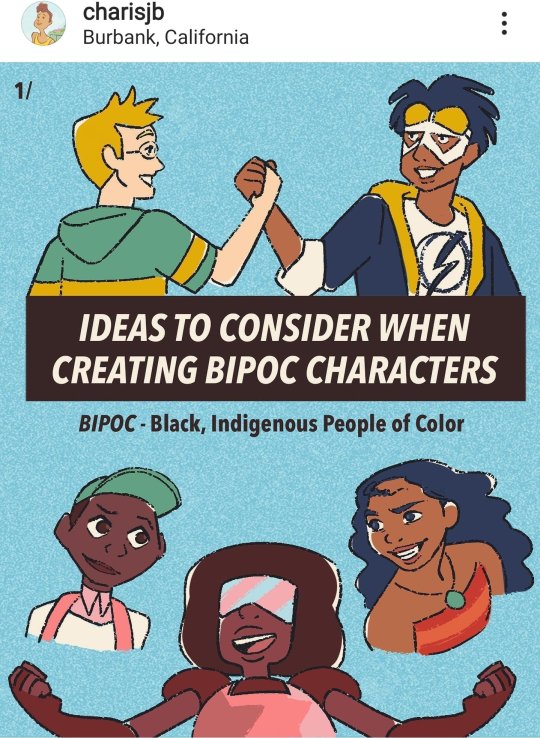
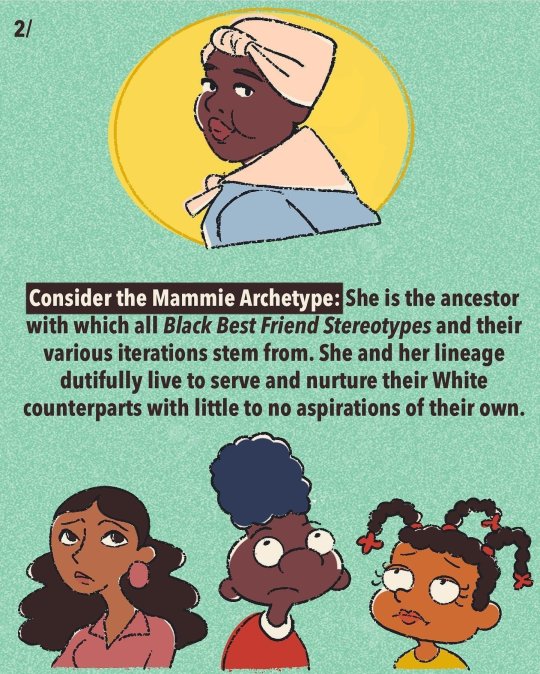

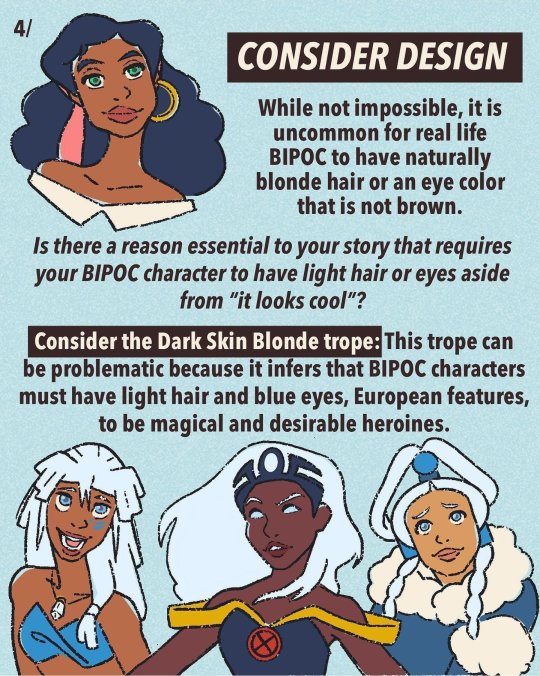
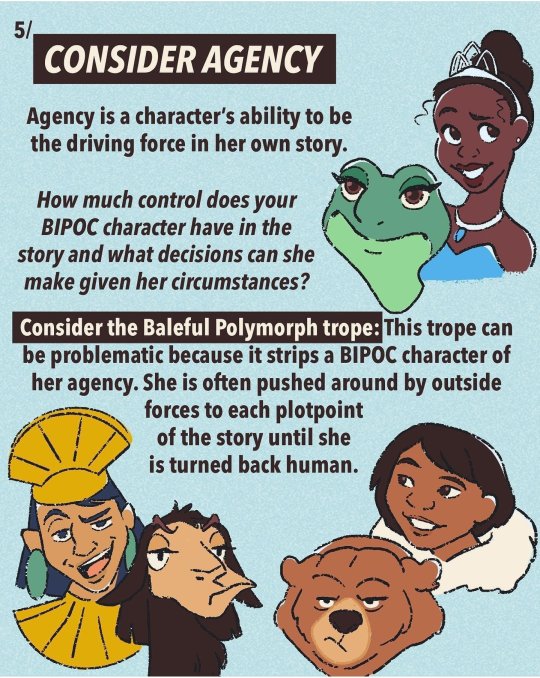

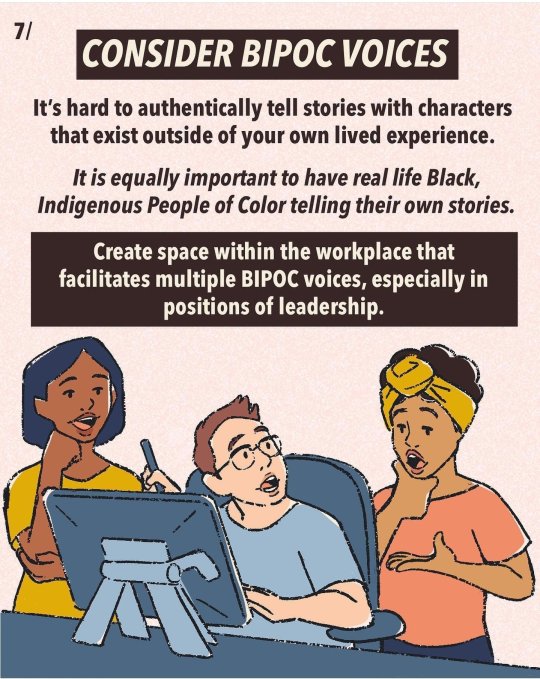
Important ideas to consider when creating characters who are black and indigenous people of color. (x)
188K notes
·
View notes
Text
one of the best pieces of writing advice i’ve ever gotten:
if a scene isn’t working, change the weather.
it sounds stupid, but seriously, it works. thank u to my screenwriting professor for this wisdom
30K notes
·
View notes
Text
Words to replace said, except this actually helps
I got pretty fed up with looking for words to replace said because they weren’t sorted in a way I could easily use/find them for the right time. So I did some myself.
IN RESPONSE TO Acknowledged Answered Protested
INPUT/JOIN CONVERSATION/ASK Added Implored Inquired Insisted Proposed Queried Questioned Recommended Testified
GUILTY/RELUCTANCE/SORRY Admitted Apologized Conceded Confessed Professed
FOR SOMEONE ELSE Advised Criticized Suggested
JUST CHECKING Affirmed Agreed Alleged Confirmed
LOUD Announced Chanted Crowed
LEWD/CUTE/SECRET SPY FEEL Appealed Disclosed Moaned
ANGRY FUCK OFF MATE WANNA FIGHT Argued Barked Challenged Cursed Fumed Growled Hissed Roared Swore
SMARTASS Articulated Asserted Assured Avowed Claimed Commanded Cross-examined Demanded Digressed Directed Foretold Instructed Interrupted Predicted Proclaimed Quoted Theorized
ASSHOLE Bellowed Boasted Bragged
NERVOUS TRAINWRECK Babbled Bawled Mumbled Sputtered Stammered Stuttered
SUAVE MOTHERFUCKER Bargained Divulged Disclosed Exhorted
FIRST OFF Began
LASTLY Concluded Concurred
WEAK PUSY Begged Blurted Complained Cried Faltered Fretted
HAPPY/LOL Cajoled Exclaimed Gushed Jested Joked Laughed
WEIRDLY HAPPY/EXCITED Extolled Jabbered Raved
BRUH, CHILL Cautioned Warned
ACTUALLY, YOU’RE WRONG Chided Contended Corrected Countered Debated Elaborated Objected Ranted Retorted
CHILL SAVAGE Commented Continued Observed Surmised
LISTEN BUDDY Enunciated Explained Elaborated Hinted Implied Lectured Reiterated Recited Reminded Stressed
BRUH I NEED U AND U NEED ME Confided Offered Urged
FINE Consented Decided
TOO EMO FULL OF EMOTIONS Croaked Lamented Pledged Sobbed Sympathized Wailed Whimpered
JUST SAYING Declared Decreed Mentioned Noted Pointed out Postulated Speculated Stated Told Vouched
WASN’T ME Denied Lied
EVIL SMARTASS Dictated Equivocated Ordered Reprimanded Threatened
BORED Droned Sighed
SHHHH IT’S QUIET TIME Echoed Mumbled Murmured Muttered Uttered Whispered
DRAMA QUEEN Exaggerated Panted Pleaded Prayed Preached
OH SHIT Gasped Marveled Screamed Screeched Shouted Shrieked Yelped Yelled
ANNOYED Grumbled Grunted Jeered Quipped Scolded Snapped Snarled Sneered
ANNOYING Nagged
I DON’T REALLY CARE BUT WHATEVER Guessed Ventured
I’M DRUNK OR JUST BEING WEIRDLY EXPRESSIVE FOR A POINT/SARCASM Hooted Howled Yowled
I WONDER Pondered Voiced Wondered
OH, YEAH, WHOOPS Recalled Recited Remembered
SURPRISE BITCH Revealed
IT SEEMS FAKE BUT OKAY/HA ACTUALLY FUNNY BUT I DON’T WANT TO LAUGH OUT LOUD Scoffed Snickered Snorted
BITCHY Tattled Taunted Teased
Edit: People, I’m an English and creative writing double major in college; I understand that there’s nothing wrong with simply using “said.” This was just for fun, and it comes in handy when I need to add pizzazz.
785K notes
·
View notes
